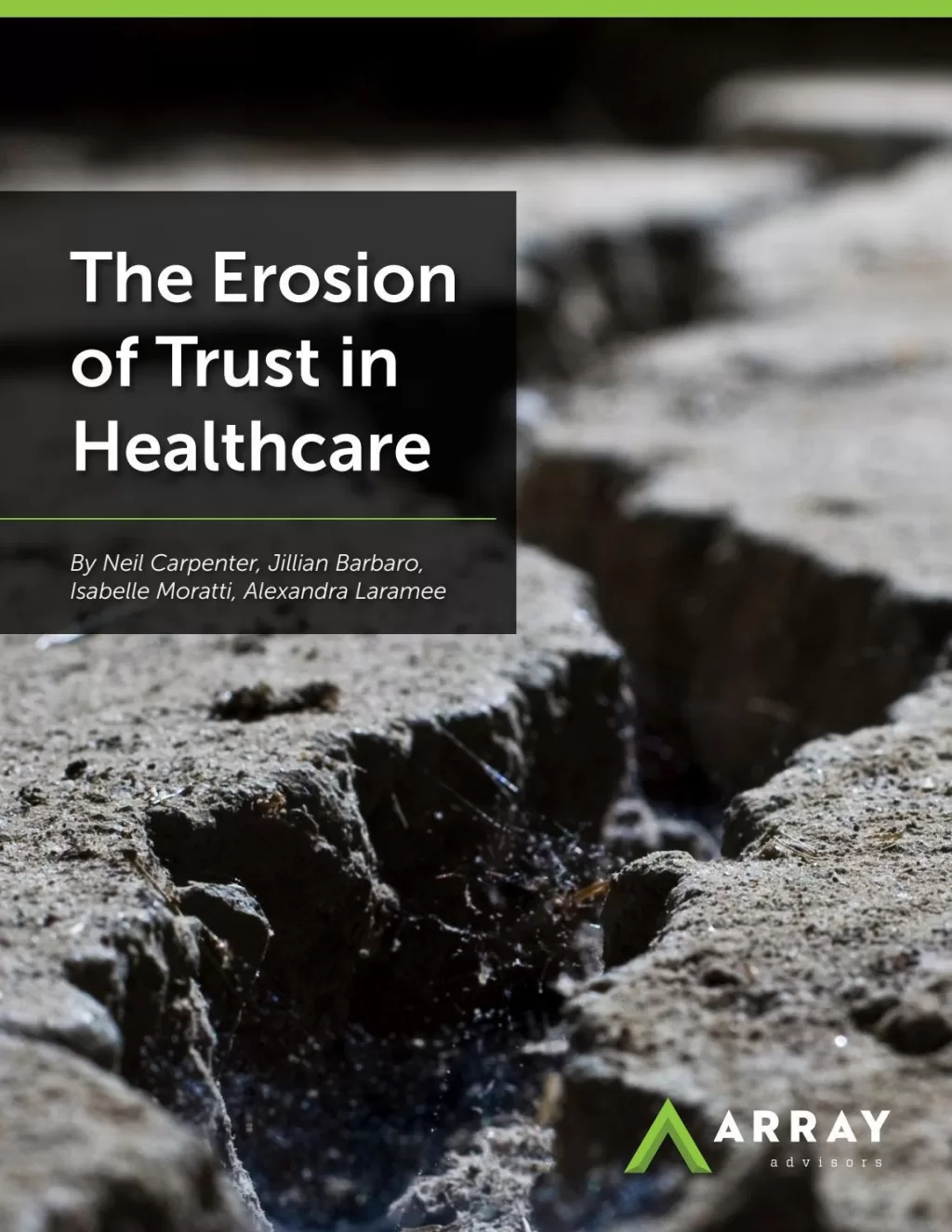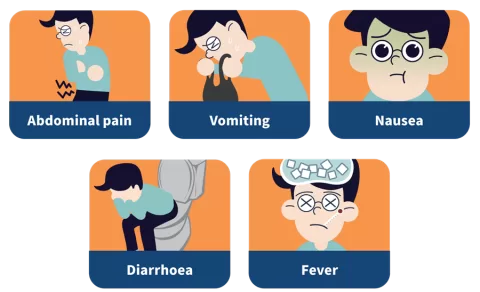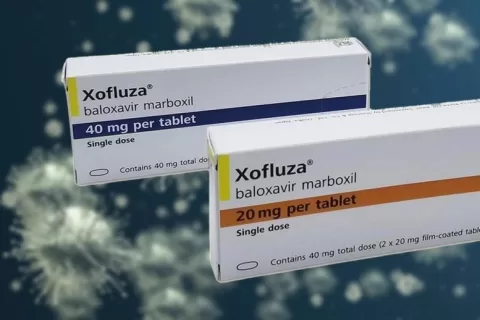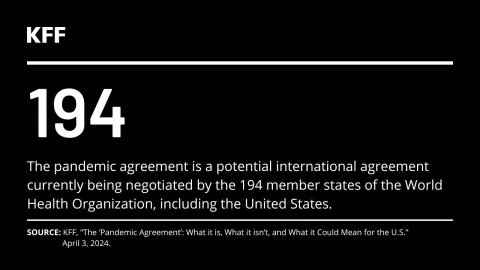Public health trust erosion is becoming a pressing concern as recent polls reveal that significant changes in federal health leadership are shaking Americans’ confidence in health recommendations. A staggering 40% of US adults express skepticism, indicating that they foresee a decline in trust toward public health institutions, particularly as contentious political shifts ripple through agencies like the CDC. COVID-19 has substantially influenced this dynamic; trust in public health has fluctuated, particularly among conservatives wary of evolving federal health leadership. As leadership changes bring figures like Robert F. Kennedy Jr. to the forefront, worries abound regarding the integrity of health policies and the implications for federal health leadership. With these trust issues laid bare, the urgency for transparent communication and actionable health recommendations has never been clearer, highlighting a critical intersection of politics, public opinion, and health security.
The phenomenon of declining confidence in health authorities presents a multifaceted challenge for public health engagement and community well-being. As skepticism mounts, many individuals are questioning the reliability of guidance provided by health agencies, including perceptions of the CDC in its ability to issue sound health recommendations. This shift in public perception stems from the turbulent landscape of federal health leadership, where the recent appointment of controversial figures has sparked considerable debate. In an era defined by heightened anxieties over COVID-19 and its ongoing implications, the confidence that Americans place in governmental health agencies is increasingly fragile. As divisions deepen, the need for a unified and trustworthy response to public health crises is becoming increasingly urgent.
Erosion of Public Trust in Health Leadership
The recent shakeups within federal health leadership have significantly affected Americans’ trust in public health recommendations. A striking 40% of US adults reported that changes at the top will erode their confidence in health directives from the government. These shifts include controversial appointments, like that of Robert F. Kennedy Jr. as secretary of the Department of Health and Human Services, which has created a climate of skepticism that extends beyond partisan lines. Trust in public health has always been essential for effective health communication and action, and the current situation raises alarms about the consequences of such leadership instability.
Moreover, the declining trust has been exacerbated by the COVID-19 pandemic, which revealed deep-seated divisions in Americans’ perspectives on health recommendations. Political affiliations heavily influence perceptions, with a larger percentage of Democrats expressing skepticism about the efficacy of the Centers for Disease Control and Prevention (CDC) under new leaders. As trust in public health continues to decline, addressing these sentiments becomes crucial for reinstating confidence in health policies and ensuring public cooperation in health initiatives.
The Impact of Federal Health Leadership Changes
Recent changes in federal health leadership raise critical questions about the future of trust in public health organizations. Poll results suggest that nearly half of respondents anticipate less trust in health recommendations due to new appointments and political shifts. This sentiment, particularly strong among those who have historically relied on federal health guidance, points to an erosion of confidence that could hinder the public’s response to health crises. Moreover, 76% of respondents expressed concern that health advisories might now be influenced more by political agendas than by scientific evidence, straying significantly from the foundational principle of trust in public health.
The ramifications of declining trust are profound. Without public confidence in health recommendations, initiatives aimed at tackling vital health issues may face obstacles in implementation. The CDC, once viewed as a beacon of reliable health advice, risks losing its authority and effectiveness. Ensuring that health decisions are grounded in science rather than politics is essential for rebuilding this trust. As public opinion shifts in the wake of federal leadership changes, it is imperative for health leaders to engage transparently with the public to reassure and rebuild this foundational trust.
Bipartisan Concerns in Public Health Policies
Despite skepticism regarding new federal health leaders, the poll also revealed significant bipartisan agreement on pressing health issues. Both Democrats and Republicans showed overwhelming support for critical areas such as preventing chronic diseases, tackling emerging viral threats, and reducing maternal mortality rates. This shared concern highlights that, even amid political divisions, there is a common understanding of the importance of addressing fundamental health challenges. A united front on these priorities could pave the way for more effective public health strategies and restore trust.
The acknowledgment of shared health priorities reflects a potential pathway toward healing the fractures in public trust. When confronted with critical health issues, Americans tend to rally around common goals, demonstrating that trust in public health can be fostered through collaboration. This underscores the need for federal health leaders to focus on inclusive policies that resonate across party lines, ensuring that public health initiatives are seen as fundamentally relevant and trustworthy. By emphasizing common ground, health leaders can work towards bridging the gap in trust while effectively addressing the nation’s health crises.
The Future of Trust in Public Health Recommendations
As federal health leadership continues to evolve, the pathway to restoring trust in health recommendations lies in consistent and transparent communication. Public health agencies must prioritize rebuilding trust by demonstrating accountability, engaging meaningfully with diverse communities, and ensuring that their recommendations are grounded in open scientific discourse. The changing landscape of public health requires leaders to address the fears and concerns that have emerged, particularly regarding the impact of politics on health advisories. Reestablishing credibility is essential for fostering a climate conducive to public compliance and cooperation.
Furthermore, the potential for renewed trust hinges on the ability of public health leaders to navigate the complexities of political affiliations and public sentiments. By addressing the worries that forecasts an erosion of trust, including fears of politicization and misinformation, federal health agencies can reclaim their authority and reassure the public. Trends indicating potential declines in trust can be reversed if robust efforts are made to align health recommendations with the evidence-based practices that the public has come to expect. The future of public health hinges on transparency, engagement, and an unwavering commitment to integrity.
Addressing Health Disparities and Public Trust
Systemic health disparities have often marginalized communities, further exacerbating trust issues in public health leadership. Many groups express skepticism towards health recommendations, influenced by longstanding inequities and perceived negligence from health authorities. Data indicating concerns over the focus on health disparities emphasizes the need for public health initiatives that not only target broad health issues but also specifically address the inequities faced by racially and economically disadvantaged populations. For trust to be restored, health leaders must demonstrate an unwavering commitment to equitable health outcomes for all.
To effectively tackle health disparities, public health leaders must engage directly with affected communities to understand their concerns and incorporate their feedback into health policies. This participatory approach not only fosters trust but also empowers communities to take an active role in their health. By ensuring that health recommendations and policies reflect the diverse needs of the population, public health leaders can build a robust foundation of trust that transcends political and social barriers, ultimately leading to improved public health outcomes.
Rebuilding Public Trust Amidst Challenges
Restoring public trust in health leadership may require innovative strategies to engage the American people meaningfully. Public health agencies must prioritize clear and consistent messaging, particularly in the wake of fluctuating administrations and their respective health messages. Trust can be rebuilt through transparency about decision-making processes, open discussions about uncertainties, and a willingness to adapt based on evolving scientific understanding. These elements are crucial for reversing the skepticism that currently pervades public opinion about federal health leadership.
Moreover, leaders must effectively communicate the rationale behind health recommendations, making it clear how they are grounded in evidence. By reinforcing the idea that these recommendations are shaped by science rather than political influences, health agencies can foster a new narrative of reliability. As trust in federal health leadership remains precarious, health officials must prioritize community engagement and education to foster a culture where informed public discourse is encouraged. A focus on rebuilding trust will be essential to ensuring that health initiatives can be effectively implemented in the years to come.
The Role of Media in Shaping Trust
In an age where information spreads rapidly, the media plays a critical role in shaping public perceptions of trust in health leadership. Misrepresentation or sensationalism in reporting can exacerbate skepticism towards federal health recommendations, especially during turbulent periods of leadership change. Media outlets must take responsibility for presenting accurate, balanced information that reflects the complexities behind public health decisions. A commitment to truthfulness can aid in alleviating public fears and enhancing trust in health recommendations from authorities.
Furthermore, collaboration between public health leaders and media can facilitate better understanding among the populace. By working together to disseminate clear, accurate information, both sectors can help create a framework where the public feels informed and secure in their trust. As both entities navigate the evolving landscape of public health communication, fostering a constructive relationship can bridge gaps in understanding and, ultimately, restore trust in health recommendations. Critical engagement in this context must be a two-way street where public health leaders proactively communicate and respond to media inquiries with clarity and sincerity.
Lessons from the COVID-19 Pandemic on Trust
The COVID-19 pandemic underscored the fragility of public trust in health authorities and the factors that can undermine it. As health recommendations evolved in response to new information, many individuals grappled with fluctuating messages, contributing to a sense of confusion and eroding trust. Public health leaders must reflect on these challenges to avoid repetition of past mistakes as they move forward. A clear understanding of how information dissemination can affect public compliance will be crucial to rebuilding trust.
In learning from the pandemic, effective communication strategies focusing on empathy, clarity, and responsiveness are essential. Public health leaders should anticipate public concerns and proactively address misinformation while presenting health recommendations as dynamic rather than static. By doing so, they can cultivate a trust-rich environment allowing for robust public adherence to health advice. The lessons learned during the pandemic provide a crucial roadmap for future public health strategies aiming to maintain and elevate trust amidst ongoing challenges.
Frequently Asked Questions
What is causing public health trust erosion in the United States?
Public health trust erosion is primarily caused by recent changes in federal health leadership, prompting concerns among Americans about the credibility of health recommendations. Surveys indicate that a significant portion of adults express distrust in public health institutions, particularly in agencies like the CDC, due to political influences and leadership alterations.
How have trust levels in public health institutions changed during COVID-19?
Trust levels in public health institutions have notably declined during the COVID-19 pandemic, particularly among conservatives. Polls reveal that changes in leadership and public health responses have contributed to this decline, with many Americans feeling less confident in the CDC’s ability to make unbiased health recommendations.
What impact do changes in federal health leadership have on public trust?
Changes in federal health leadership have a direct impact on public trust, with many Americans fearing that new leaders will influence critical health recommendations based on political agendas rather than science. This fear contributes to a growing erosion of trust in public health guidance.
How can public health agencies rebuild trust after leadership changes?
To rebuild trust after leadership changes, public health agencies must prioritize transparent communication, evidence-based health recommendations, and community engagement. Demonstrating commitment to tackling public health issues collaboratively can help rebuild confidence in federal health leadership.
What role does political affiliation play in public health trust erosion?
Political affiliation plays a significant role in public health trust erosion, with partisan divides influencing perceptions of health agencies like the CDC. Polls show that Democrats are more likely to express distrust in leadership changes whereas many Republicans believe these changes may enhance the effectiveness of health recommendations.
What are Americans’ main concerns regarding CDC health recommendations?
Many Americans express concerns that CDC health recommendations may become politicized, leading to reduced transparency and effectiveness. Specific worries include the potential for corporate influence, a lack of focus on health disparities, and an emphasis on unproven science.
What common health priorities do Americans support across political lines?
Despite divisions in trust, Americans across political lines support several health priorities, including preventing chronic diseases, ensuring safe tap water, addressing maternal and infant mortality, and responding to emerging health risks, indicating a shared concern for public health.
How does public confidence in the CDC relate to recent federal health leadership changes?
Public confidence in the CDC is closely tied to recent federal health leadership changes, with many citizens fearing these shifts could undermine the agency’s effectiveness. Poll findings reveal fluctuating trust levels depending on political beliefs, underscoring the importance of stable, credible leadership in public health.
| Key Point | Statistics/Details |
|---|---|
| Trust Erosion Amid Leadership Changes | 40% of US adults feel recent federal leadership changes will decrease their trust in public health. |
| Polarized Trust Levels | 76% of Democrats predict a loss of trust, while 57% of Republicans expect an increase. |
| Perception of CDC Effectiveness | 77% of adults trust the CDC, but 44% expect this trust to decline in the next 4 years. |
| Concerns About CDC | 76% fear political influence in health recommendations; 70% worry about restricted public information. |
| Bipartisan Support for Health Issues | High agreement on prioritizing chronic disease prevention, maternal health, and safe drinking water. |
Summary
Public health trust erosion is a growing concern as Americans express waning confidence in public health leadership following significant changes in federal roles. Recent polls indicate that nearly 4 in 10 adults fear these leadership shakeups will undermine their trust in health guidelines. This situation illustrates a critical need for public health agencies to reassure the public through transparent initiatives that prioritize community health and factual resources.
The content provided on this blog (e.g., symptom descriptions, health tips, or general advice) is for informational purposes only and is not a substitute for professional medical advice, diagnosis, or treatment. Always seek the guidance of your physician or other qualified healthcare provider with any questions you may have regarding a medical condition. Never disregard professional medical advice or delay seeking it because of something you have read on this website. If you believe you may have a medical emergency, call your doctor or emergency services immediately. Reliance on any information provided by this blog is solely at your own risk.








